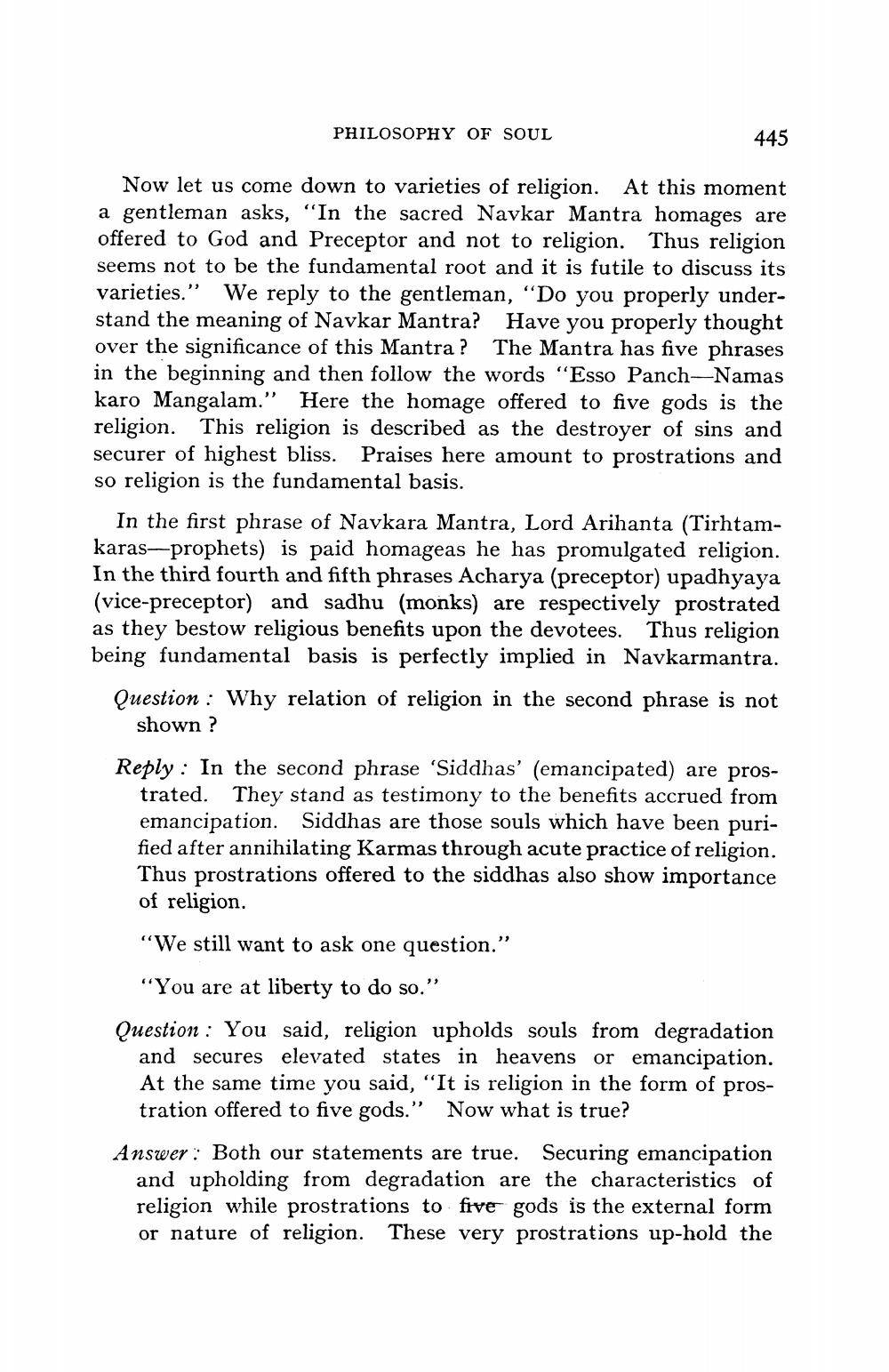________________
PHILOSOPHY OF SOUL
445
Now let us come down to varieties of religion. At this moment a gentleman asks, “In the sacred Navkar Mantra homages are offered to God and Preceptor and not to religion. Thus religion seems not to be the fundamental root and it is futile to discuss its varieties." We reply to the gentleman, "Do you properly understand the meaning of Navkar Mantra? Have you properly thought over the significance of this Mantra ? The Mantra has five phrases in the beginning and then follow the words "Esso Panch-Namas karo Mangalam.” Here the homage offered to five gods is the religion. This religion is described as the destroyer of sins and securer of highest bliss. Praises here amount to prostrations and so religion is the fundamental basis.
In the first phrase of Navkara Mantra, Lord Arihanta (Tirhtamkaras-prophets) is paid homageas he has promulgated religion. In the third fourth and fifth phrases Acharya (preceptor) upadhyaya (vice-preceptor) and sadhu (monks) are respectively prostrated as they bestow religious benefits upon the devotees. Thus religion being fundamental basis is perfectly implied in Navkarmantra. Question : Why relation of religion in the second phrase is not
shown? Reply : In the second phrase 'Siddhas' (emancipated) are pros
trated. They stand as testimony to the benefits accrued from emancipation. Siddhas are those souls which have been purified after annihilating Karmas through acute practice of religion. Thus prostrations offered to the siddhas also show importance of religion. “We still want to ask one question.”
"You are at liberty to do so.” Question : You said, religion upholds souls from degradation
and secures elevated states in heavens or emancipation. At the same time you said, “It is religion in the form of prostration offered to five gods.” Now what is true?
Answer: Both our statements are true. Securing emancipation
and upholding from degradation are the characteristics of religion while prostrations to five gods is the external form or nature of religion. These very prostrations up-hold the




